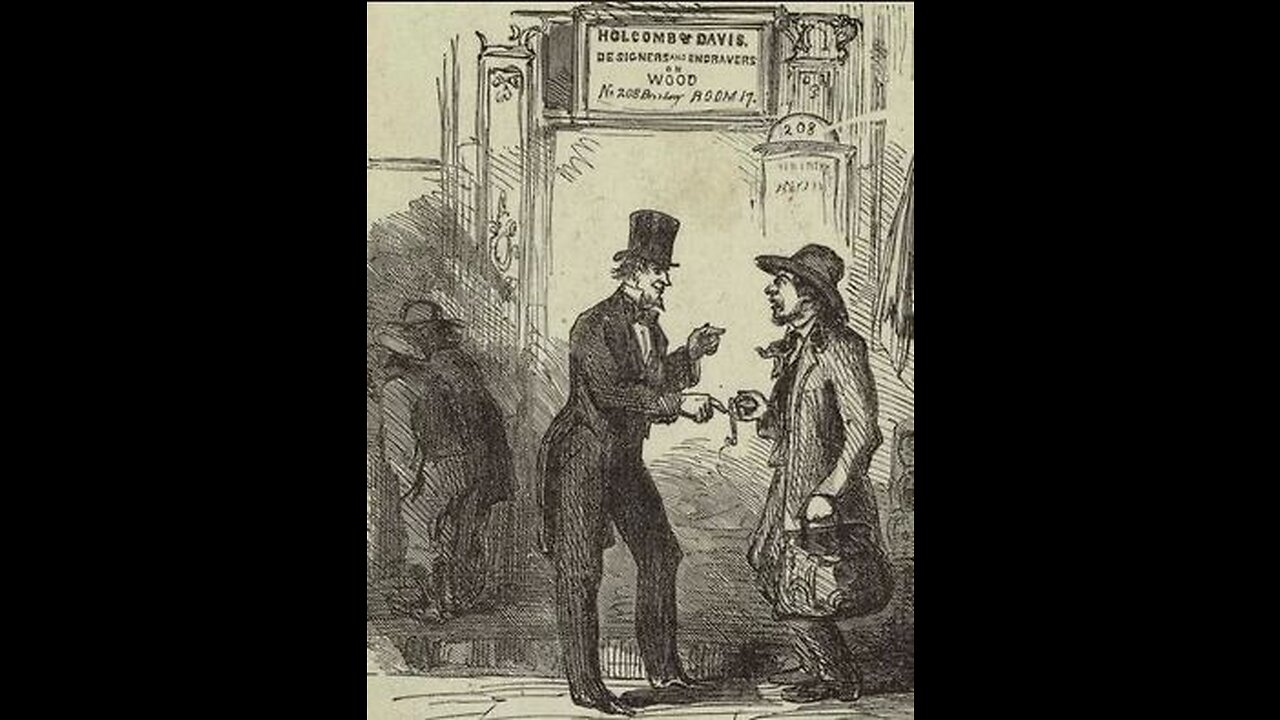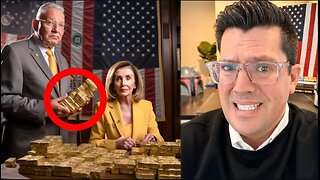Premium Only Content

"Paul Clifford", Tomlinsoniana, by Edward Bulwer-Lytton
And thus concludes the last bit of text from the novel "Paul Clifford".
Sir Robert Filmer was an English political theorist of the 17th century who defended the divine right of kings.
There's a footnote after the "Knaves are like critics": "Nullum simile est quod idem".
The bit of French is translated for us by the author in a footnote, so "Je pensois a mon pauvre pere, qui est mort." we are told means "I used to think of my poor father, who is dead."
Constantin François de Chassebœuf, comte de Volney, late 18th to early 19th century, was a French philosopher, abolitionist, writer, orientalist, and politician. The reference to him is noted by the author as being from his "Lectures on History".
"the most celebrated of charlatans" has with it a footnote of "Mahomet"
"grandeur d'ame" the author informs us in a footnote to mean "greatness of soul".
Sharper: a cheat; one who lives by his wits
The reference to Florimel I believe (hopefully someone more familiar with English literature can confirm) is a reference to Edmund Spenser's works, writing in the late 16th century. Perhaps "The Faerie Queene"?
teres et rotundas: smooth and round
Lara / Medora / Kaled - I don't recognize these specifically, but a google search suggests a poem by Lord Byron? Comment below if you know this reference.
Boileau: Nicolas Boileau-Despréaux, 17th century French poet and critic.
humbug: deceptive or false talk or behavior
In the section "Popular Wrath At Individual Imprudence.", the author provides a footnote: "Mr. Tomlinson is wrong here; but his ethics were too much narrowed to Utilitarian principles.—EDITOR"
Amadis de Gaula: A Spanish Chivalric romance written in the 14th century, but popular in the 16th.
Shenstone: William Shenstone, 18th century English poet and pioneer in landscape gardening
Waller: Edmund Waller, 17th century poet and politician (one of the longest serving members ever to the House of Commons!)
Cowley: Abraham Cowley, 17th century English poet and essayist. Although the wikipedia page gives a different pronunciation for the name, but every YT video about him ever uses the pronunciation I gave, which is the one that seems obvious to the modern English speaker. Of course, with the Great Vowel Shift still ongoing, although coming to a close, during his life, it is perhaps unsurprising if his name had a different pronunciation in his day.
Tibullus: Albius Tibullus, Latin poet of the first century BC.
I'm unclear on who "Dr. Parr" is supposed to be, but perhaps Samuel Parr (26 January 1747 – 6 March 1825), an English schoolmaster, writer, minister and Doctor of Law.
The picture used is "A New York City swindler tries to cheat a man from the country, 1868."
To follow along: https://www.gutenberg.org/files/7735/7735-h/7735-h.htm#link2H_4_0040
-
 2:02:20
2:02:20
Nerdrotic
10 hours ago $19.44 earnedDECLASSIFIED: JFK, MLK UFO Immaculate Constellation Doc | Forbidden Frontier #089
84.8K17 -
 3:00:14
3:00:14
vivafrei
18 hours agoEp. 248: "Bitcoin Jesus" Begs Trump! Rekieta Gets Plea Deal! Pardons, Deportations, Bird Flu & MORE!
197K216 -
 3:44:06
3:44:06
Rising Rhino
17 hours ago $13.83 earnedWashington Commanders Vs Philadelphia Eagles: NFL NFC Championship LIVE Watch Party
93.3K4 -
 13:00
13:00
Exploring With Nug
11 hours ago $7.04 earnedHe Went To Get A Haircut And Vanished WIthout a Trace!
75.5K3 -
 18:53
18:53
DeVory Darkins
2 days ago $33.42 earnedTrump JUST ENDED Mayor Karen Bass During HEATED Meeting
104K223 -
 21:06
21:06
Russell Brand
15 hours agoIT'S COMING
161K527 -
 21:26
21:26
Stephen Gardner
1 day ago🔥What JUST leaked out of Congress must be STOPPED NOW!
148K286 -
 53:25
53:25
tether
11 days agoStability and Freedom in Chaos: The Story of Tether USD₮ | Tether Documentary (USDT)
156K6 -
 56:44
56:44
VSiNLive
2 days agoFollow the Money with Mitch Moss & Pauly Howard | Hour 1
90.5K2 -
 36:50
36:50
Anthony Pompliano
2 days ago $17.48 earnedInvestors Are ALL-IN On Bitcoin
81.6K23